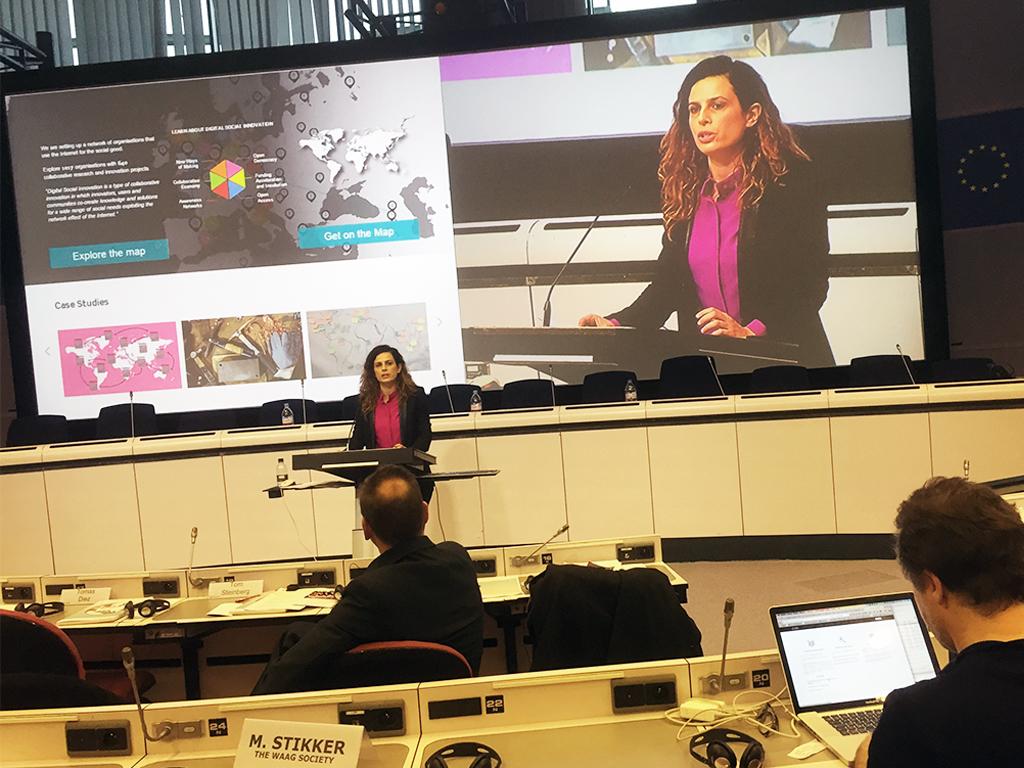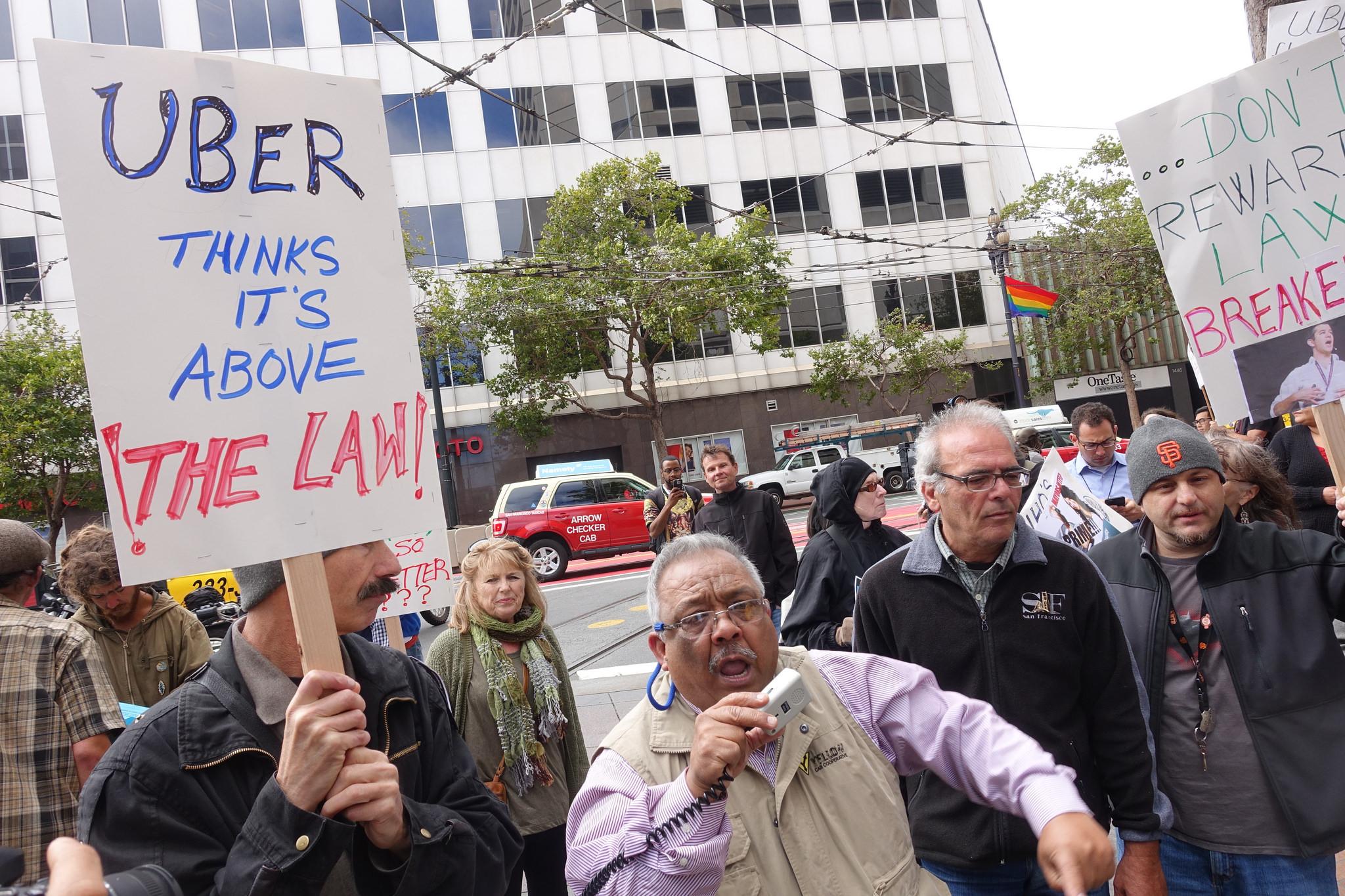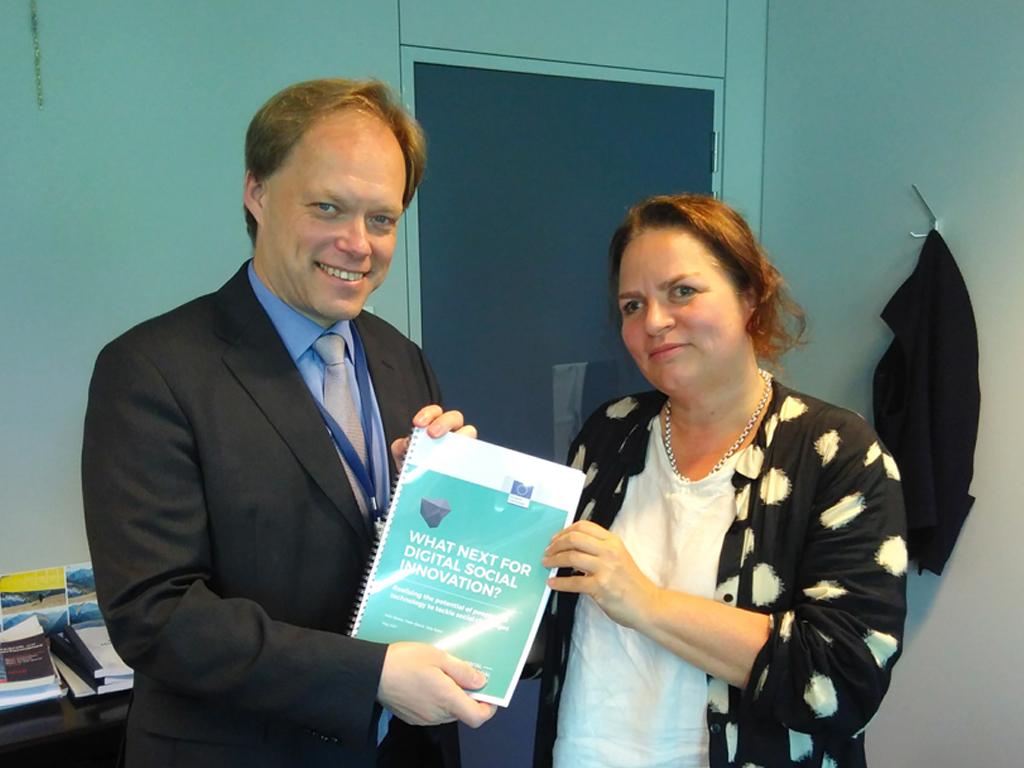On Tuesday February 17th, 2015, the report about Digital Social Innovation (DSI) was presented in Brussels. The last several months, NESTA, ESADE and Waag worked hard to make this happen. DSI is therein defined as "a type of social and collaborative innovation-in which final users and communities collaborate through digital platforms to produce solutions for a wide range of social needs and at a scale that was unimaginable before the rise of Internet-enabled networking platforms."
Best practices
The report contains a survey of more than 1,000 organizations and projects (and their relationships), detailed descriptions of good examples (including Arduino, FairPhone and the Smart Citizen Kit), and recommendations for policymakers. The concept and use of DSI can be empowered through clever use of money, (de)regulation, legislation, support for R&D, and communication. Extensive panels discussed the findings and recommendations of the DSI report. Cases were also discussed.
A large number of speakers, including Evgeny Morozov (writer of 'Click Here To Save Everything'), Geoff Mulgan (director of NESTA) and Marleen Stikker were in complete agreement on one thing: the main question we must ask ourselves is what type of society do we really want, and what should be the role of technology in that society?
Do we want quick profits to (continue) creating private monopolies or do we want a system in which new entrants are encouraged and users retain their autonomy?
A view to the future
Technology is never neutral, but always contains values that may or may not be in the public interest. To ensure that the results of DSI are eventually beneficial to the society, the development and the results should be open and transparent. Transparency is also necessary so that others (and not just the makers) can understand how things work and how they can turn it to their advantage.


